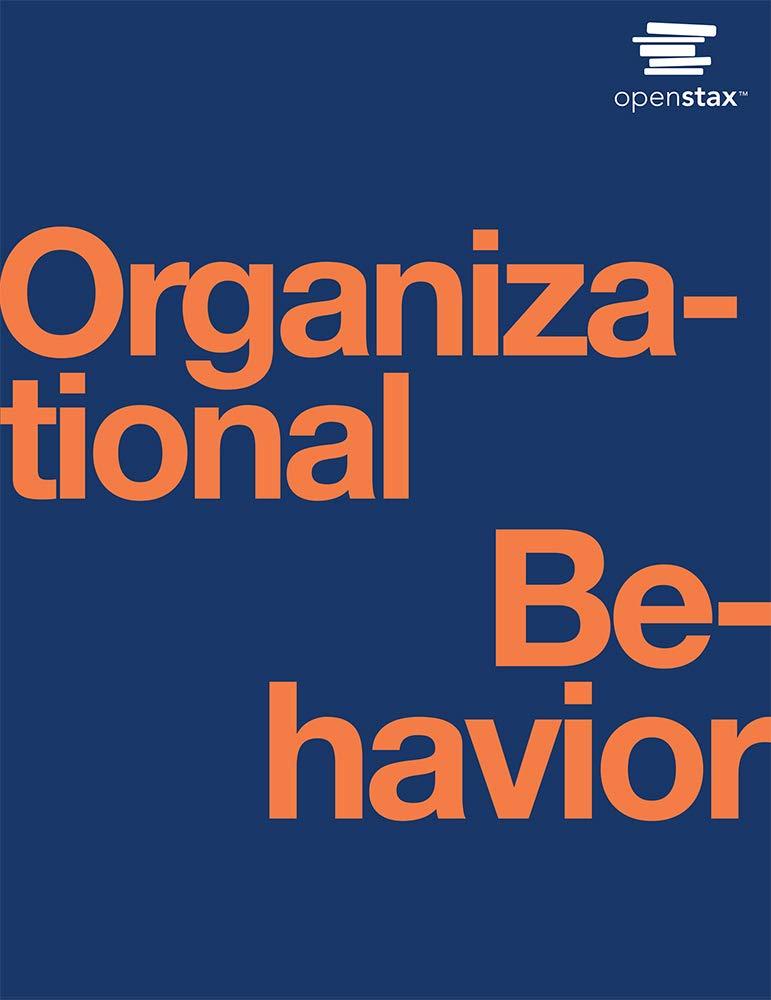The disgruntled employee is hardly a culturally isolated feature of business, and quitting before leaving takes the
Question:
The disgruntled employee is hardly a culturally isolated feature of business, and quitting before leaving takes the same forms, regardless of country. Cross-cultural signaling, social norms, and simple language barriers can make the task of motivation for the global manager confusing and counterintuitive. Communicating a passion for a common vision, coaching employees to see themselves as accountable and as owning their work, or attempting to create a “motivational ecosystem” can all fall flat with simple missed cues, bad translations, or tone-deaf approaches to a thousand-year-old culture.
Keeping employees motivated by making them feel valued and appreciated is not just a “Western” idea. The Ghanaian blog site Starrfmonline emphasizes that employee motivation and associated work quality improve when employees feel “valued, trusted, challenged, and supported in their work.” Conversely, when employees feel like a tool rather than a person, or feel unengaged with their work, then productivity suffers. A vicious cycle can then begin when the manager treats an employee as unmotivated and incapable, which then demotivates the employee and elicits the predicted response.
The blogger cites an example from Eastern Europe where a manager sidelined an employee as inefficient and incompetent. After management coaching, the manager revisited his assessment and began working with the employee. As he worked to facilitate the employee’s efficiency and motivation, the employee went from being the lowest performer to a valuable team player. In the end, the blog says, “The very phrase ‘human resources’ frames employees as material to be deployed for organizational objectives. While the essential nature of employment contracts involves trading labour for remuneration, if we fail to see and appreciate our employees as whole people, efforts to motivate them will meet with limited success” (Starrfmonline 2017 n.p.) Pavel Vosk, a business and management consultant based in Puyallup, Washington, says that too often, overachieving employees turn into unmotivated ones. In looking for the answer, he found that the most common source was a lack of recognition for the employee’s effort or exceptional performance. In fact, Vosk found that most employees go the extra mile only three times before they give up. Vosk’s advice is to show gratitude for employees’ effort, especially when it goes above and beyond. He says the recognition doesn’t have to be over the top, just anything that the employees will perceive as gratitude, from a catered lunch for a team working extra hours to fulfill a deadline to a simple face-to-face thank you (Huhman 2017).
Richard Frazao, president of Quaketek, based in Montreal, Quebec, stresses talking to the employees and making certain they are engaged in their jobs, citing boredom with one’s job as a major demotivating factor (Huhman 2017).
But motivating employees is not “one size fits all” globally. Rewarding and recognizing individuals and their achievements works fine in Western cultures but is undesirable in Asian cultures, which value teamwork and the collective over the individual. Whether to reward effort with a pay raise or with a job title or larger office is influenced by culture. Demoting an employee for poor performance is an effective motivator in Asian countries but is likely to result in losing an employee altogether in Western cultures. According to Matthew MacLachlan at Communicaid, “Making the assumption that your international workforce will be motivated by the same incentives can be dangerous and have a real impact on talent retention” (2016 n.p.).
Huhman, Heather R. 2017. “Employee Motivation Has to Be More Than 'a Pat on the Back.’” Entrepreneur. https://www.entrepreneur.com/article/287770 MacLachlan, Matthew. 2016. “Management Tips: How To Motivate Your International Workforce.”Communicaid. https://www.communicaid.com/cross-cultural-training/blog/motivating-internationalworkforce/Starrfmonline. 2017. “HR Today: Motivating People Starts With Right Attitude.” http://starrfmonline.com/2017/03/30/hr-today-motivating-people-starts-with-right-attitude/#
1. As a Western manager working in the Middle East or sub-Saharan Africa, what motivational issues might you face?
2. What problems would you expect a manager from a Confucian culture to encounter managing employees in America? In Europe
3. What regional, cultural, or ethnic issues do you think managers have to navigate within the United States?
Step by Step Answer:






